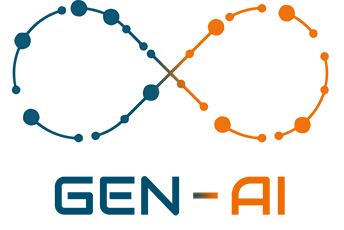Use Case: Transportation Contract Evaluation with Key Terms Identification
Overview:
Evaluating transportation contracts is essential to ensure agreements with providers include clear terms that guarantee service quality and protect the organization’s interests. A generative semantic model capable of processing PDFs can automatically analyze these contracts, extract key clauses such as Service Level Agreements (SLAs) and claims handling policies, and generate clear summaries to facilitate review and management.
How It Works
- PDF Contract Upload:
Users upload transportation contracts into the system, which may include agreements for shipping, storage, and distribution. - Document Processing:
- The model uses natural language processing (NLP) to identify and extract:
- SLAs (Service Level Agreements): Key indicators like delivery times, availability percentages, and service guarantees.
- Claims Handling Policies: Procedures for filing, investigating, and resolving incidents such as damage or delays.
- Penalties: Conditions applied for non-compliance, such as delays or goods loss.
- The model uses natural language processing (NLP) to identify and extract:
- Risk and Omission Identification:
- Detects incomplete or ambiguous clauses, such as claims policies lacking specific response times.
- Highlights areas missing clear penalties or explicit commitments in SLAs.
- Summary Generation:
- Produces a structured report that includes:
- Contract strengths and compliance points.
- Risks and identified omissions.
- Recommendations for adjustments and negotiations.
- Produces a structured report that includes:
- Storage and Querying:
- Processed data is stored in vector databases for quick searches and future audits.
Practical Example
Scenario:
A company needs to evaluate contracts with two transportation providers before renewing agreements to ensure timely deliveries and effective claims management.
Process Using the Model:
- Document Upload:
Contracts for both providers are uploaded in PDF format. - Model Analysis:
- Provider 1:
- SLAs: Guaranteed delivery times of 48 hours for domestic shipments and 7 days for international ones.
- Claims Policies: Defined response times of 5 business days and resolution within 15 days.
- Penalties: A 3% fine for each day of delay.
- Provider 2:
- SLAs: Undefined delivery times for international shipments.
- Claims Policies: Mentioned but lack response or resolution timelines.
- Penalties: Not specified.
- Provider 1:
- Summary Generation:
The model generates a report that includes:
- Provider 1:
- Strengths: Clear delivery and claims timelines, with defined penalties.
- Risks: None detected.
- Provider 2:
- Strengths: Defined SLA for domestic shipments.
- Risks: Missing clear SLAs for international shipments and absence of penalties for non-compliance.
- Recommendations:
- Provider 1: Acceptable contract with no modifications.
- Provider 2: Negotiate the inclusion of response timelines in claims policies and specific penalties.
- Provider 1:
- Report Output:
The logistics team receives a clear summary facilitating comparison between providers and highlighting critical areas for renegotiation.
Benefits of the Model for Transportation Contract Evaluation
- Time Savings:
- Automates the review of lengthy contracts, accelerating the evaluation process.
- Risk Identification:
- Highlights incomplete clauses or ambiguous terms that could lead to future issues.
- Clear Summary Generation:
- Provides structured reports that emphasize key points, simplifying review and understanding.
- Improved Negotiations:
- Aids in renegotiating critical terms, such as penalties and response times for claims.
- Efficient Organization and Queries:
- Enables processed documents to be stored for quick searches and future audits.
Additional Applications
- Internal Contract Audits:
- Periodic review of older contracts to verify validity and compliance.
- Provider Comparison:
- Analyzes contractual terms from different providers to identify the most favorable option.
- Regulatory Compliance:
- Verifies contracts comply with local and international transportation and logistics laws.
- Renewal Management:
- Highlights critical terms requiring adjustments before contract renewal.
Practical Example
Additional Scenario:
An e-commerce company reviews contracts with transportation companies to ensure timely deliveries during peak demand seasons.
- Without the Model:
- Legal and logistics teams spend weeks manually reviewing each contract, searching for relevant clauses, and detecting inconsistencies.
- With the Model:
- The system automatically analyzes contracts, generating summaries that highlight SLAs, claims handling policies, and penalties, enabling fast, well-informed decision-making.
Conclusion
Automated evaluation of transportation contracts with summary generation transforms a manual, detailed process into an agile, accurate, and strategic task. This semantic model not only saves time but also improves analysis quality by identifying key risks and opportunities in agreements. Ideal for logistics companies, e-commerce businesses, and any organization relying on reliable transportation services.
.


